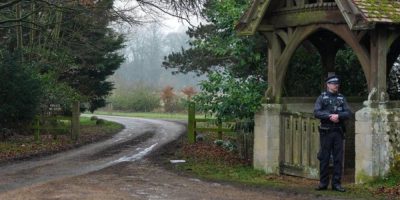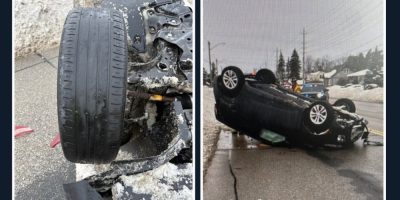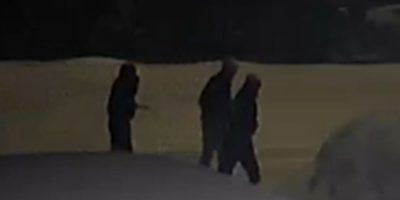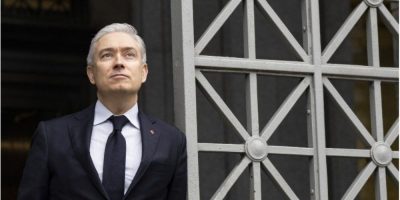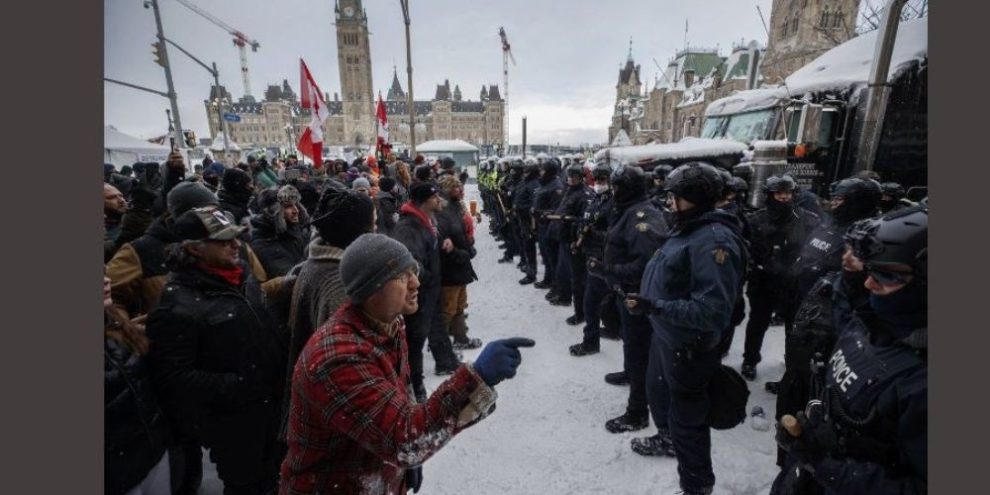
By David Fraser in Ottawa
The judge leading the public inquiry into the federal Liberal government's unprecedented use of the Emergencies Act warned of tight timelines on Thursday as he urged everyone to work together to enlighten Canadians.
"Uncovering the truth is an important goal," Ontario Court of Appeal Justice Paul Rouleau, who is leading the inquiry, said in his opening remarks to the Public Order Emergency Commission.
"When difficult events occur that impact the lives of Canadians, the public has a right to know what happened," he said Thursday as the commission began six weeks of public hearings in downtown Ottawa.
The Liberal government invoked the Emergencies Act on Feb. 14, the first time the act had been used since it replaced the War Measures Act in 1988. The move temporarily granted police extraordinary powers and allowed banks to freeze accounts.
The Liberals argued it was needed to end border blockades and the occupation of downtown Ottawa by protesters demonstrating against COVID-19 vaccine mandates, lockdowns and the government.
The Canadian Civil Liberties Association, on the other hand, argued at the time that the federal government had not met the threshold.
The Emergencies Act requires that a public inquiry must be called to examine the circumstances surrounding the decision to use it. Public hearings, which began Thursday, are scheduled to continue until Nov. 25.
Prime Minister Justin Trudeau, seven federal ministers, police forces and officials from all levels of government as well as "Freedom Convoy" organizers are all expected to appear in the coming weeks.
Rouleau and his staff started the proceedings by explaining how the inquiry will work, including how documents and evidence will be presented, before witnesses begin testifying on Friday.
Since the commission was established on April 25, it has been collecting documents and interviewing dozens of people, including central figures in the "Freedom Convoy" such as Tamara Lich, Chris Barber, Pat King and James Bauder — all of whom are facing criminal charges for their roles.
Lich was among those in the public viewing gallery as proceedings got underway.
Rouleau said inquiries are meant to learn from experience and make recommendations for the future.
"They do not make findings of criminal liability, they do not determine if individuals have committed a crime."
The hearings in the building that houses Library and Archives Canada are being livestreamed and members of the public can share their views with the commission online.
Rouleau said the process getting to the start of the inquiry has been "challenging."
"Discharging my mandate is not an easy task," he said, later adding that "timelines will be tight."
He appealed to participants and their legal counsel to co-operate to ensure the facts are properly presented to the public.
The Public Order Emergency Commission was to begin hearings Sept. 19, but those were delayed because Rouleau had to undergo surgery.
The City of Ottawa's auditor general has also launched a review of the local response to the convoy, and several groups have initiated proceedings in Federal Court to challenge the government's use of the Emergencies Act.
The inquiry is also distinct from the all-party parliamentary committee struck to review the Emergency Act's use in March.
Both the public inquiry and the parliamentary committee, which continues its work, are required under the Emergencies Act.
Banner image: THE CANADIAN PRESS/Cole Burston
This report by The Canadian Press was first published Oct. 13, 2022.

